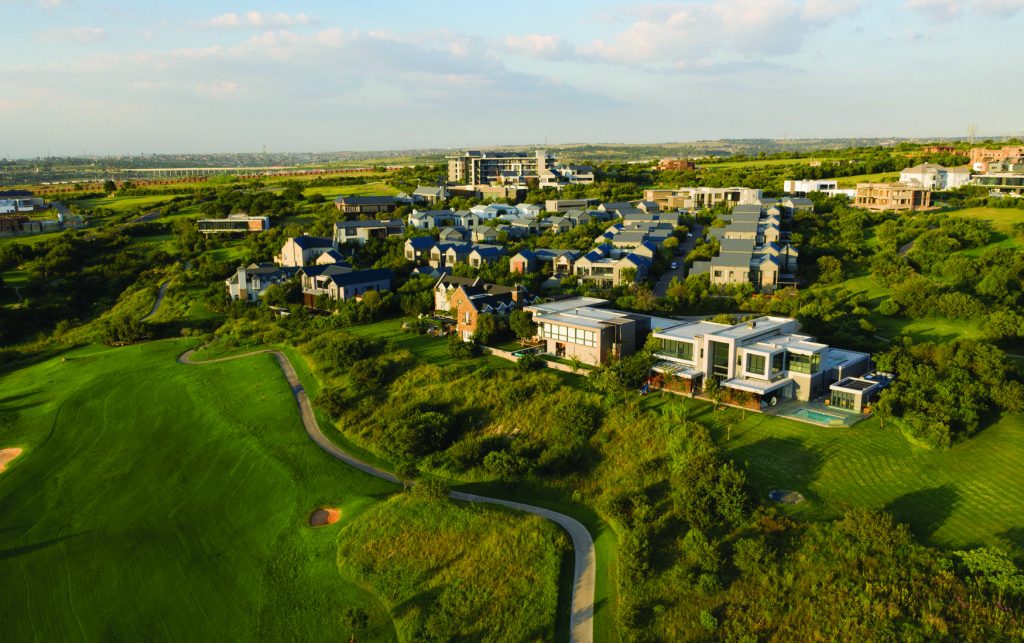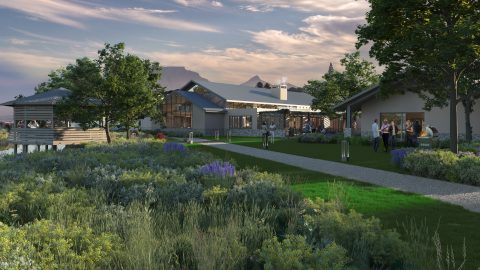Business Day Prime
Choosing A Lifestyle Estate
By: Anthony Sharpe
First up, it’s worth asking if living in close proximity to other people is right for you, advises Craig Torr of Crue Invest. “I feel the starting point is asking if you see yourself living among other people,” says Torr. “A lot of people aren’t comfortable with that and like to be left alone, whereas others thrive in that sort of environment. That will determine to a large degree what is comfortable down the line.”
If you’re up for socialising, check what sort of social activities are on offer – regular events like bridge evenings, book clubs, film screenings and dance lessons present opportunities to meet people, which is especially valuable when you stop working.
“This is an added bonus of living in a lifestyle estate,” says Lambert Bezuidenhout of Steyn City. “We encourage community engagement through events such as monthly night runs, wine pairing dinners and poolside parties during summer.”
Estates with a minimum entry age also allow you to manage your expectations better, says Rolene van Aswegen of Farhills Manor. “In a townhouse complex you might have a newborn baby next door screaming all night and rowdy teenagers on the other side, whereas with a mature lifestyle estate you’re likely to have people with similar lifestyles That’s what makes these so popular.”
Location, location, location
“Every form of property begins and ends based on its locality,” says Bruwer de Jager of Devmark Property Group. “Get it wrong and you will make the worst investment decision of your life; get it right and you will be smiling all the way to the bank.” De Jager says in today’s climate people are primarily focused on amenities, job location and a secure environment, not only within the estate itself but also in the surrounding areas. “If you are in a very well-located area with a strong residential segment around you, then your village will retain its value and also attract a much stronger buyer/tenancy market in general.”
Amenities
The estate’s location will obviously influence what sort of amenities are available. An estate built around a wetland, for example, should offer beautiful walking trails and birdlife, while one with sufficient space might offer golfing facilities of some sort.
Some estates go the whole hog to create a self- contained world. Bezuidenhout says that as Steyn City caters to a diversity of life stages from singles and newlyweds to growing families and retirees, its amenities are equally diverse. “Our recreation facilities include a dino-park, play nodes and a skate park for kids and teens, outdoor gym stations, a fully equipped gym, several eateries, a magnificent Nicklaus Design golf course with award-winning clubhouse, equestrian centre and clubhouse, and an indoor aquatic centre. We also have an on-site school campus for children from grade 0 to matric, and AAA-grade office premises. This ensures we are able to create the ultimate lifestyle – one where our residents have the time they need to live a life of comfort and convenience.”
Safe and sound
“Security is a massive concern for most families: buyers need to look at what measures have been put in place to ensure residents’ safety,” says Bezuidenhout. It’s also particularly pertinent for older residents who wish to enjoy the freedom to move safely around their neighbourhood – and beyond.
Van Aswegen says apartments like those at Farhills Manor are a great lock-up-and-go option for people who have stopped working and wish to travel: “It’s like owning an apartment in a hotel.”
CCTV cameras, electric fencing, access control and round-the-clock security personnel should be standard. It pays to do your homework, though, and take a good look at what an estate offers in this respect, and check if any incidents have been reported in the news. Chatting to other residents or the body corporate is also a good way to get on-the- ground information.
Investing
There are three ways to invest in this sort of property: freehold; sectional title and life rights. The first two are available in more family-oriented estates like Steyn City, while the latter two apply to mature lifestyle estates.
Freehold is just like normal house ownership: you hold the title deed, you’re responsible for maintenance of the property, and you pay any associated taxes, rates and services. You will also have to contribute towards shared services and amenities including grounds and security.
Sectional title is similar to freehold, but your obligations are slightly different in that you share in an undivided portion of the common property of the estate, the upkeep of which is covered by management fees and levies. You also typically have to consult the body corporate on upgrades or alterations.
Life rights involve buying the right to occupy a unit in the estate for the rest of your life, with monthly levies over and above that. You don’t own any of the property, and upon your death the right expires and can be sold by the lifestyle estate, with the original purchase price plus a percentage of the net profit being paid to your estate.
“In a way, life rights make it more affordable for someone to live in that property than buying it,” explains Torr. “It frees up some of their capital to invest and provide income on a monthly basis. The downside is that your estate doesn’t really get growth on the value of the property; that growth is essentially cross-subsidising your stay there.”
Money matters
Figuring out the best investment option is key to managing your finances moving forward. “Unless they’re living in an oversized house in an expensive suburb, in most cases where people downscale into a sectional title, they don’t actually free up any cash,” says Torr. “Generally, it’s quite a lateral move financially. Going with life rights can free up a lot more money for the same standard of living.”
If you choose to buy outright, De Jager says it’s particularly important to look at your financial position and to investigate any hidden costs before committing to any lifestyle estate. “South Africa’s present and forthcoming interest rate climate for the months to come will make it much easier for buyers to consider getting into the market at a good premium.
“Also have a look at the developer and what other projects they have completed. Make sure you are covered contractually and that you get an attorney’s input before committing under deed.”
Ultimately, there’s no one-size-fits-all solution, says Torr. “Each person’s situation is different: if you don’t have children, or your kids have done really well for themselves and don’t need inheritance, then the idea of legacy isn’t a major concern. You need to ask which option will give you the most satisfaction.
If you’re unhappy with the choices you make, even if you have lots of money left over that money is meaningless.”
Levies
Any estate carries monthly levies, which are crucial to factor into your purchase decision. “These cover security, maintenance and repairs for existing recreational facilities, kitchen levies for restaurant and bar, TVs in common areas, pools and heating systems, backup generators, clubhouse, lifts, gardens and walkways, electric fencing and the structural property of common areas such as walls and passage ways,” says Rolene van Aswegen. “The funds collected are also used to cover the estate manager during office hours, administrative costs like management fees, bank charges and stationery, municipal costs including water, electricity, refuse collection and sewage, and insurance for the common property.”
Be sure to inquire about the levy history of the estate, and any potential increases. Some estates have a levy stabilisation fund, which uses a percentage of the profits on resale of units to keep levies level over time.
CARE OPTIONS
Even if you’re presently healthy, it’s important to try anticipate any future medical or care needs. Check the standard of medical facilities on the premises and compare them to others. Ask about doctors, nurses and other healthcare practitioners, and whether or not they do home visits.
Another important consideration is frail care. Most mature lifestyle estates have frail-care facilities, which are covered by levies. An increasingly popular option, says Rolene van Aswegen, is assisted living. “This is when you can no longer perform normal day-to-day duties by yourself, and need help to do so. The focus is on making ageing at home possible without having
to move to a place of care.” She says a notable advantage of assisted living is that you only pay for it when you need it, as opposed to a frail-care facility, which you contribute towards through higher levies and then pay extra for when admitted. “This makes it a better option financially.”






 Sign-up and receive the Business Media MAGS newsletter OR SA Mining newsletter straight to your inbox.
Sign-up and receive the Business Media MAGS newsletter OR SA Mining newsletter straight to your inbox.